The Red Thread Read online
Page 9
Outside, the rain had stopped. It was a beautiful evening. Maya got in her car and headed back to the East Side, where Jack Sullivan was waiting to have a drink with her. She tried not to think about that. Instead, she put on her Moldy Peaches CD, almost silly in its optimism. She thought about the families she had spent the afternoon with. That Nell.
Maya forced that out of her mind too, and thought instead of Susannah, how she had looked almost frightened when they talked about the mothers marking the babies. She thought about Emily and Michael, and then that baseball player with his loud southern voice and big mustache, and then Sophie and how eager and hopeful she was about everything, and before she knew it, Maya was back on Wickenden Street and parking in front of Z Bar.
Jack was at the bar already. He was wearing a Hawaiian shirt, red with bright yellow and blue birds on it, and green palm trees. In front of him sat a half-empty mixed drink, something clear with a slice of lime.
When he saw her he stood, and kissed her lightly on the cheek.
She ordered a glass of wine, and drank it too fast in her nervousness.
“I’m a terrible dater,” she admitted after he tried to make small talk, asking her about her work, about Providence, about her childhood. Each topic seemed daunting to her. “I don’t know how to do it,” she said.
“Then I’ll talk,” he said, and he told her about growing up in South Boston. He made her laugh with his stories of going to Catholic schools and how he lost his virginity in college in a car without any heat in the middle of January in Vermont. When he suggested they get a table and have dinner, she agreed readily.
Maya tried to remember what she and Adam used to talk about. Their work, of course. Politics. Somehow she had gotten to know all of these parts of his life, his family and his sexual adventures and his travel stories.
“Have you been married?” Maya asked Jack.
“Eleven years. We grew apart. It’s so clichéd.” He pried open a mussel and dredged it in broth. “You?”
“Yes. Clichéd too. He’s remarried, has a child.” She said these things like she knew them firsthand. Like it was all right.
After dinner, he suggested they go for a walk. But Maya surprised herself by asking him to come to her place instead. As she watched the headlights of his silver BMW follow her through the streets of her neighborhood, she felt that tug again, that yearning for something she once knew. That was when she realized she would sleep with him. If Adam could move on and get married and even have another baby, goddamn him, surely she could make love to someone. Surely she could spend the night in a man’s arms, and wake up beside him and not feel terrified.
When they were inside her house, Maya opened a bottle of wine and poured them each a glass. But they only took a sip or two before it began.
As she unbuttoned his silly shirt, she whispered, “I lived in Hawaii. For years and years.”
“That’s why you seem so exotic, then,” he said, shrugging out of the shirt.
She opened her mouth to say something else, but he silenced her with his tongue.
Somehow they managed to wait until they got to the bedroom, but then there was no more waiting. Maya opened herself to this man, this stranger, and for a few moments there was no Adam, no ambulance ride through palm-tree-lined streets, no hailstorm, nothing. There was just this: sex with a man she hardly knew.
But when it was done, and she settled into that familiar position of the woman’s head on the man’s shoulder, as her fingers played with the silver hair on his chest, Maya spoke.
“Something terrible happened,” she said.
He seemed to hold his breath.
“I have never told anyone the truth,” Maya said. “At night, when I try to sleep, my mind takes me back to that day instead, even then I lie. I invent a slippery floor, a ray of blinding sunlight, a heroic attempt to stop the inevitable. But there was no water from her bath dripped onto the tiles. The sun, though bright in that way of tropical places, did not stab through the window. And I, the mother, her mother, stood and watched her fall. I tell myself that I reached out, groping, grasping, my hands almost, almost catching her, my fingers grazing the air.”
Neither of them moved. Maya tried to stop herself, but it was too late. Now he would ask questions, jump to conclusions, run away.
“The startling horrible truth is this,” Maya said, surprised by how calmly she spoke. “I gave her a bath, my daughter, my love. I filled the tub with Winnie-the-Pooh bath bubbles. I made sure the water was just right. Not too cold, not too hot. I splashed my fingers in it, sending bubbles into the air. That always made her laugh. Is there anything as beautiful as a baby’s toothless smile? I remember watching her in that moment and my chest tightened with love. We think that love is an open thing, like open arms, but my love for her was close and tight, as if there was room for just the two of us in it, like a hug.
“She cried when I took her out of the bath. Cried hard. But I could smell the chicken I had put in the oven, almost done. I used to make it with lemons and garlic and rosemary. My specialty. There was laundry on the kitchen table waiting to be folded and my husband about to come home and who likes a dry chicken? And after dinner he would take the baby so I could finish my own work. I saw a cartoon once with a bride and a groom and the minister is asking: ‘I now pronounce you tired.’ That is motherhood too, exhaustion from playing and not sleeping and loving so hard. And roasting chickens and folding laundry and papers to grade and a husband.
“Even when I wrapped her in her fluffy towel, the one spotted like a Dalmation with a hood that had little ears that stood up and a small tail in the back that hung down, she cried. She wiggled and cried. The smell of roasting chicken filled the hot air, mingled with the sweet scent of bubble bath and my own sour sweat. I hadn’t even showered yet. I cooed and hummed and did the things that calmed her. But nothing worked. Holding her against my hip in one arm, I reached for a diaper and the onesie that I liked so much, a soft pink one with that famous pencil drawing of John Lennon on it and the word IMAGINE. I sang ‘Puff the Magic Dragon’ softly.
“I reached. She cried. She threw her head back and squirmed, and then she was gone. Out of my arms, backwards, like a high diver, an acrobat, an angel.”
Hunan, China
NIFAN
Ni Fan loved Xhao Hui. She had loved him ever since she first saw him on a hot summer day when she walked down the dirt road toward the market. She had a pole across her shoulders, and from that pole hung two baskets, one on each side, and in one of those baskets sat two sweet potatoes.
That was what she would sell in the market today. Ni Fan would get the yuan for the sweet potatoes and buy tea and rice with it and then she would walk back down this road to her family’s house where her mother would be waiting, frowning and waiting because Ni Fan never brought home enough.
“Then you go to the market and sell nothing,” Ni Fan had told her yesterday. “Because that is all you give me to sell. Nothing. You expect me to get precious things for what I make selling a few sweet potatoes.”
Her mother had yanked Ni Fan’s hair. This was what people did when they were hungry. They yanked their daughter’s hair. They beat their chests. They kicked at the soil that only yielded a few sweet potatoes instead of basketsful. Ni Fan understood this. But still, when her mother yanked her hair like that, Ni Fan thought: I hate you! She was fifteen years old, the age when girls hate their mothers and dream of a different life.
That hot summer day when Ni Fan saw Xhao Hui, he was standing in a field of kale and he had a funny hat on his head. She stopped walking to get a better look. He was very tall, and he wore a pale blue shirt and that hat. There was writing on the hat. Ni Fan squinted, trying to make it out.
“Girl!” he called. “What are you staring at? Have you never seen a man before?”
Ni Fan laughed at this. He wasn’t a man at all. He was a boy her age, maybe a little older.
“Is there a man in that field with you?” she called back
to him.
Sometimes when she remembered this, the hot sun beating down on her, the taste of her sweat on her lips, the smell of dry dirt, the weight of the sweet potatoes, all of it, she believed that by the time she finished that sentence she was already in love. She took a few steps closer toward him, and tried to read his hat.
“In some places, it is considered rude to stare,” he said, grinning at her.
She was close enough now to see that one of his front teeth was cracked.
“In what places?” she asked him.
“England,” he answered quickly, surprising her.
Ni Fan wondered where England was. Probably in the United States, where there were many odd customs. Her father had heard of these years ago when a student from America had traveled through the village. That boy had told the villagers about ground meat sold out of windows to people in automobiles, and machines that washed dishes and clothes, and a special machine used just to heat up cold food. “Americans,” her father had told her, “are spoiled and lazy.” Sometimes, when Ni Fan boiled water to clean the clothes, and carried the heavy cast-iron pot, she thought a machine that did this for her might be a marvelous thing.
“You are a daydreamer,” the boy was shouting at her. He pointed a finger and grinned.
Ni Fan frowned at him, even though her heart soared. “Yes,” she admitted. “I dream about machines that wash clothes.”
The boy laughed. “Do you mean robots?”
“Yes,” she said. She had no idea what robots were.
“Will your robot help me in the fields?”
“Yes,” she said again.
Yes was what Ni Fan said to him a few days later when she passed him on her way to the market and he asked her if she wanted to meet him that night in the park. Yes was what she said when he asked if he could kiss her a few nights after that. And when he pressed himself against her, she heard herself whispering, “Yes, yes, yes.” After that night, Ni Fan saw everything differently.
Had her mother, with her sour face and wrinkled forehead, once felt this desire? This throbbing low in the gut? This feeling that if she didn’t see a boy and have him kiss her immediately, have him touch her there and there, have him enter her and move inside her and sigh in her ear, then she might die? Had her father, whose back was now bent awkwardly from work, once been so strong that he could lift her mother onto him? Had he known to probe her in such a way that she had felt as if she was falling from a very high roof?
“What’s wrong with you?” her mother asked her as Ni Fan held her bowl of rice without eating it. “What are you staring at?”
Ni Fan shrugged. In two hours it would be dark and she would sneak away. She would feel the warm night air on her bare skin. She would feel her lover inside of her. She would fall from rooftops, from hilltops, from mountains.
Her mother smacked her on the side of the head. “Be useful,” she said. “Stop dreaming.”
Ni Fan stood and collected the empty rice bowls from her parents and her grandparents.
“Wouldn’t it be nice if we had robots to clean our dishes?” she said.
Her father laughed. “Lots of dreams can occur over a long night,” he said.
Angry, Ni Fan turned her back on her family. She threw the dirty dishes into the bucket of tepid water and began to scrub. She hated the way rice clung to everything, how difficult it was to remove.
Outside, darkness fell. This calmed her. Soon, she would be in Xhao Hui’s arms, spinning dreams. Sometimes he whispered about the two of them leaving here and going to Beijing. There were jobs there, and shiny buildings made of glass and metal. People rode in automobiles. “Do they have robots in Beijing?” Ni Fan had whispered, imagining robots that washed clothes and dishes and even her own body. “Perhaps,” he had whispered back.
Her stomach did that tugging that she recognized as desire. Hurriedly, she made fresh tea and served her parents and her grandparents. In her haste, Ni Fan splattered her grandmother’s hand and the old woman swatted at her as if she were no more than a fly, a nuisance. How tenderly Xhao Hui brought her close to him, she thought.
“Be careful!” her mother reprimanded.
Hot tears sprang to Ni Fan’s eyes, burning for the whispers of Xhao Hui.
Finally, after sweeping and wiping and serving, Ni Fan slipped away. She wished she had wings to get her to Xhao Hui faster.
When at last she saw his figure in the dark, lit by the glow of his cigarette, she threw herself at him, covering him with kisses. His hat with the odd writing fell off his head, and laughing, he threw her onto the ground, straddling her.
“You are like a tiger,” he whispered.
Ni Fan smiled in the darkness, pulling down her pants, reaching for him.
“So eager, my tiger,” he said.
Then he pushed into her. Their bodies moved together.
“Yes, yes, yes,” Ni Fan whispered.
“MARRY ME,” Ni Fan said one night after they made love.
Xhao Hui lay beside her, smoking a cigarette.
“Marry me and we can do this all the time. In the morning when we wake together. In the afternoon when we are taking a break from work.”
When he didn’t answer, she said, “Marry me and we can go to Beijing.”
“Don’t you know that matrimony is the grave of romance?” Xhao Hui said. “Look at your parents. And mine. They are bitter and repressed.”
“But we won’t become that way!”
He turned to her and kissed her. “Of course we won’t because we won’t get married. We’ll just make love until we grow old and die.”
His kissing grew more insistent and his fingers moved along her body.
“Three months we’ve been meeting like this,” Ni Fan said, even as her back arched to meet his probing fingers. “I want to be with you in the daylight. I want everyone to see our happiness.”
“Does this make you happy, my tiger?” he whispered, moving his fingers in just the right way.
Ni Fan tried to stay focused. She wanted to make her point.
“Does it?” he was saying, his fingers on that spot, so soft and persistent. “Does it?”
“If we marry…” she began.
She was on that rooftop, that hilltop. She heard her ragged breath.
“If we…” she began. But she did not finish. She was falling off a mountain, falling, falling, falling.
WHY DIDN’T Ni Fan think it was terrible? Why didn’t she realize the shame of it? Why did she run down the road, empty-handed, bursting with joy? Xhao Hui looked up when he heard her calling his name. For some reason, that day he wore his hat with the overlapping symbols N and Y backwards on his head. Later, Ni Fan would think of it as the day everything turned around. But that morning, she ran through the fields and shouted Xhao Hui’s name. Her breasts ached as she ran and the aching made her smile even more.
“I’m pregnant!” she blurted. As she had walked here to tell him, she had imagined all the ways to give him the news. But once she stood there before him, they all dissolved and there was just the news itself.
“It’s true!” she said, opening her arms to him. She unbuttoned her shirt at the breast so that he could see the fullness, the darkened nipples. Then she unbuttoned more buttons to show him the swell of her stomach. “Look,” she said proudly.
Xhao Hui clutched her shirt closed. “Dress yourself,” he said harshly, and Ni Fan stepped back as if she had been slapped.
“Let me think,” he said as she buttoned her shirt with her trembling fingers.
Xhao Hui paced in a small, tight circle, staring at the hard earth.
But when he looked up at her finally, he nodded. “I know this,” he said, relieved. “In the next village there is an old woman who can get rid of the baby. Yes,” he said, nodding. “You can act as if you are going to the market and instead you will walk to the next village. She will do what needs to be done, and you will be home by nightfall. You can think of a story for why you are late returning from the
market. You have such a good imagination, you will think of something. See how simple?”
Ni Fan shook her head as if to clear away cobwebs there. “Why would we do that?” she said finally.
Xhao Hui patted her arm. “Because it’s best, Ni Fan. We aren’t married. The humiliation will ruin your family.” He lowered his voice. “It will ruin you,” he said. “What man will marry you if you have a baby out of wedlock?”
“What man?” she repeated. Her mouth suddenly went very dry. Then she tasted bile rising from deep in her stomach, into her throat, and she began to retch. Ni Fan turned from him. She kneeled in the dirt, vomiting.
Xhao Hui stroked her back. “There, there. You’ll feel better once the woman gets it out of you. Why, you’ll be back to your old self almost right away. That’s what I’ve heard. It’s all very easy.”
At last, the vomiting stopped. But Ni Fan was too weak to stand. She imagined this was what it felt like to be tossed about at sea. Everything shifted and spun.
“Why, you can even go tomorrow!” Xhao Hui was saying.
Ni Fan shook her head.
“Yes,” he said, “tomorrow is as good a day as the next. Better to get it done.”
“No,” Ni Fan said.
“What?”
She thought she might be sick again. She dug her fingers into the dirt to hold on to something. Ni Fan looked at the boy she loved. “No,” she said again.
ON THE MORNING that she left her baby in the park, Ni Fan took the only sweet potato that grew in her family’s barren field. That sweet potato would buy them enough rice for that night’s dinner. The rice coffer was empty, and just the night before her grandmother had complained of hunger pains. Ni Fan tucked the sweet potato into the hem of her pants and wrapped her infant daughter in a strip of fabric that she slung across her shoulder.
It was not quite dawn, the time of morning when she used to sneak back into the house after meeting Xhao Hui. The sky above her was still dark, but in the distance light shone, slowly making its way toward her. Ni Fan walked down the dirt road toward the park. No one had prepared her for the soreness left after childbirth—her breasts ached, and the very place that had brought her such delight now felt raw and wounded. When the pains had come two nights ago, Ni Fan had gotten through the labor by believing that once it was over she would be back to normal. But everything hurt her, inside and out.

 Kitchen Yarns
Kitchen Yarns Waiting to Vanish
Waiting to Vanish Morningstar
Morningstar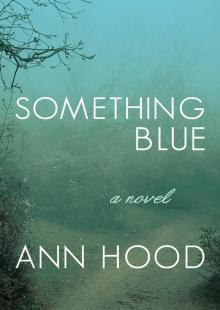 Something Blue
Something Blue Providence Noir
Providence Noir Somewhere Off the Coast of Maine
Somewhere Off the Coast of Maine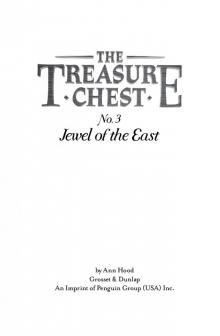 Jewel of the East
Jewel of the East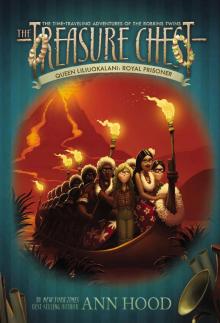 Queen Liliuokalani: Royal Prisoner
Queen Liliuokalani: Royal Prisoner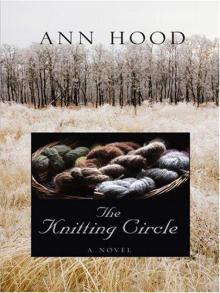 The Knitting Circle
The Knitting Circle Leonardo da Vinci: Renaissance Master
Leonardo da Vinci: Renaissance Master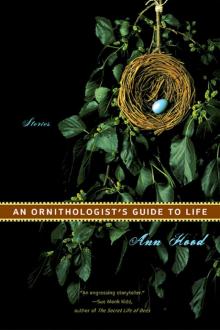 An Ornithologist's Guide to Life
An Ornithologist's Guide to Life The Red Thread
The Red Thread She Loves You (Yeah, Yeah, Yeah)
She Loves You (Yeah, Yeah, Yeah) Brave Warrior
Brave Warrior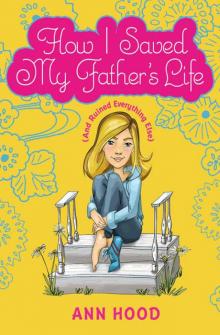 How I Saved My Father's Life (and Ruined Everything Else)
How I Saved My Father's Life (and Ruined Everything Else) An Italian Wife
An Italian Wife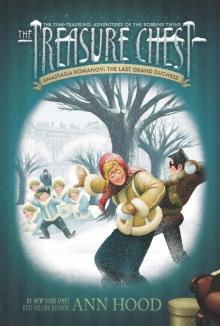 Anastasia Romanov: The Last Grand Duchess #10
Anastasia Romanov: The Last Grand Duchess #10 Prince of Air
Prince of Air Amelia Earhart: Lady Lindy
Amelia Earhart: Lady Lindy Places to Stay the Night
Places to Stay the Night Little Lion
Little Lion Comfort
Comfort Angel of the Battlefield
Angel of the Battlefield